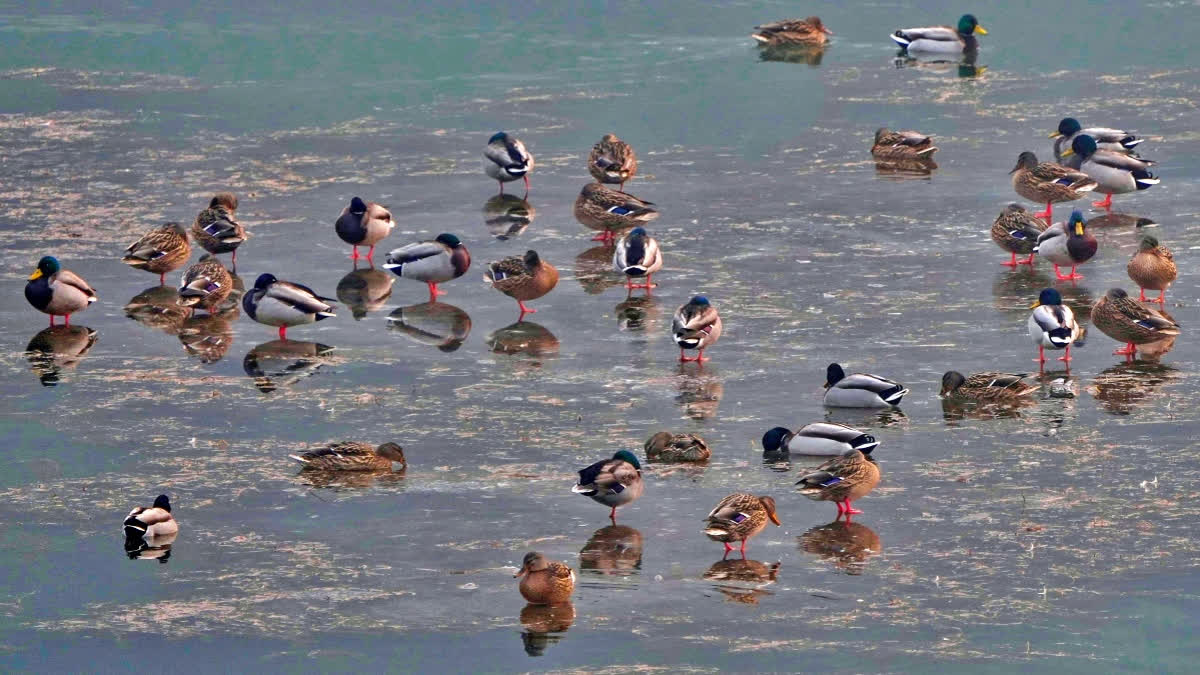Srinagar:Kashmir witnessed a bone-chilling start to Chillai-Kalan, the dead of winter, as the mercury plunged to minus 8.5 degrees Celsius in Srinagar during the intervening night of Friday and Saturday, the coldest in the summer capital since 1974. That year the temperature had dropped to minus 10.3 degrees Celsius.
Other areas of Kashmir also froze with minimum temperatures going below minus 10 degrees in three districts -- Anantnag (-10.5), Shopian (-10.4), and Pulwama (-10.3).
The minimum temperature recorded in Srinagar the previous night stands as the third-lowest December reading in the city since 1891. The lowest temperature ever recorded in Srinagar was minus 12.8°C on December 13, 1934.
December 21 marks the start of Chillai-Kalan, the 40-day harsh winter period in Kashmir that extends till January 31. It is followed by Chillai-Khurd, a 20-day period of milder cold from January 31 to February 19, and Chillai-Bachha, a 10-day phase of relatively lighter cold from February 20 to March 2.
Dal Lake Freezes
The biting cold conditions led to the freezing of water supply lines in many areas and the fringes of water bodies, including the Dal Lake. The prolonged dry spell in the city and other areas in the plains has triggered ailments like cough and common cold, officials said.
The meteorological department has predicted mainly dry weather till December 26 with a possibility of light snowfall in higher reaches of the valley on the night of December 21-22. It said light snow over a few higher reaches is also possible from the night of December 27 to the morning of December 28. However, the minimum temperature is likely to fall further in the valley and there will be a cold wave at isolated to scattered places during the next few days, the department said.
Kashmiris pray for snow
Amid spine-chilling cold, people in the valley are looking to the heavens, seeking respite in the form of snow to break the chilling dry spell. Residents in several parts of the valley said frozen water supply lines and erratic electricity had made life tougher as they resorted to traditional means of keeping themselves warm.
